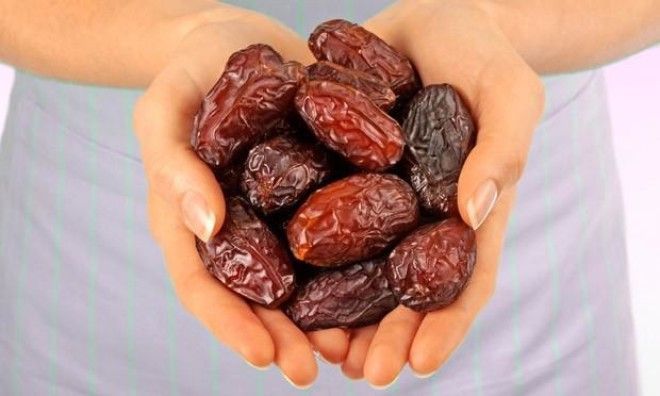These ancient fruits used to be an imported delicacy reserved only for the wealthy. Now available to all of us, dates are deliciously sweet and provide many health benefits that should convince you to eat them everyday.
Dates come from the date palm tree and have many varieties. Of these, medjools and honey dates are the most common. Other varieties include halawi, deglet noor, hayani, black khaisab, and thoory. Dates are produced by many countries, including the United Stated, Israel, Tunisia and Algeria.
The skin and fruit of the date are both edible and they can be eaten fresh or dried. Usually dates will be pitted, but if not, be careful biting down on one as you could bite into the hard seed inside.
Nutritional Benefits of Dates
Of course all food is a source of energy for the body but dates are a super food that pack a nutritional punch. If you are being selective of what to include in your diet, there are numerous reasons to select dates as one of your regular tablemates.
Dates are naturally high in sugar, so be cautious of this if you are watching your intake of sweets. Sometimes they will be preserved in honey to make them last longer. In spite of their sugar content, dates may be beneficial even for diabetics. Consult with your doctor if sugar in your diet is a concern.

A 100 gram serving of dates contains:
– Fiber: 6.7 grams. 27% RDA.
– Potassium: 696 milligrams. 20% RDA.
– Copper: 0.4 milligrams. 18% RDA.
– Manganese: 0.3 milligrams. 15% RDA.
– Magnesium: 54 milligrams. 14% RDA.
– Vitamin B6: 0.2 milligrams. 12% RDA.
With all of these nutritional benefits, there are at least 5 healthy reasons that you should include them in your diet.
5 Reasons You Should Eat Dates Every Day
1. Dates Improve Digestive Health.
Dates contain both soluble and insoluble fiber. Insoluble fiber can help relieve constipation and helps with normal bowel functioning. The colon cleansing properties of the insoluble fiber in dates can potentially have colon cancer benefits as well.

Dates may be beneficial for colitis sufferers as well. Dates can even help with hemorrhoids which are caused by irritable bowels. Dates can also help with diarrhea, so they are effective at balancing overall digestive function. The soluble fiber in dates may also help with weight loss since it helps to increase the feeling of fullness.
2. Dates Relieve Pain.
Magnesium is an anti-inflammatory and helps reduce swelling of tissues which can help ease the sensation of pain. As the research on inflammation related diseases continues, dates may be helpful for other inflammation related ailments as well, such as arthritis, asthma and sinusitis.
Dates are so effective at pain relief that women who are going through labor pains and who ate dates in the last 4 weeks before labor reduced their use of pain medications by 28%.
Advertising
If dates can help with the intense pain of labor, they can help many other minor aches as well.

3. Dates Improve Brain Function.
The vitamin B6 found in dates has been linked to improvements in performance on test scores. B vitamin supplements have been used to prevent cognitive decline in patients who are suffering from dementia.
Researchers found that a combination of B6, B12 and folic acid was ideal for decreasing the rate of progression of Alzheimer’s disease. B vitamins could also play a role in reversing some of the cognitive symptoms of brain degenerative disease.
4. Dates Reduce Blood Pressure.
The magnesium in dates is good for reducing blood pressure. Magnesium helps hypertensive patients by reducing both systolic and diastolic blood pressure. Magnesium also helps reduce arterial swelling which helps decrease the risk of heart disease.
Dates have other health benefits beyond magnesium. Potassium is also found in them and helps with heart health as well as reducing blood pressure. Potassium also reduces the effects of sodium on blood pressure. Their soluble fiber can be helpful to reduce cholesterol.

5. Dates Reduce Risk of Stroke.
Since magnesium has benefits for the blood vessels, it should come as no surprise that it can help reduce the likelihood of stroke. The American Journal of Clinical Nutrition found that for every 100 milligrams of magnesium consumed per day, a person’s risk of stroke is reduced by 9%.
Not sure how to use them in your cooking? Try chopped dates with pecans added to a salad with a balsamic dressing. Dates can be added to many baking recipes or try them blended into a smoothie. Dates can even be frozen and substituted for ice cream.

